Smart Tax Strategies 2025: How to Maximize Your Savings
Discover the smartest tax strategies for 2025 to maximize your savings, and stay ahead with proactive financial planning.
Start planning today and unlock major tax savings opportunities for 2025!
Tax season doesn’t have to feel like a burden. With 2025 approaching, it’s time to think smarter, not harder, about your financial future.
Understanding the newest tax strategies can help you legally minimize your liabilities, capitalize on deductions, and position yourself for lasting financial success.
Whether you’re self-employed, employed, or managing investments, preparing early is the key to maximizing every opportunity the new year brings.

Max Out Retirement Contributions
One of the simplest and most effective ways to reduce your taxable income in 2025 is by maximizing your retirement plan contributions.
Traditional 401(k)s and IRAs allow you to contribute pre-tax income, meaning your taxable income lowers immediately.
For 2025, contribution limits are expected to rise slightly, giving you an even bigger opportunity to shelter income. If you’re over 50, don’t forget about catch-up contributions—these can significantly enhance your retirement nest egg while cutting this year’s tax bill.
Take Advantage of Health Savings Accounts (HSAs)
HSAs are still one of the best tax-favored accounts available. Contributions are tax-deductible, the money grows tax-free, and withdrawals for qualified medical expenses are also tax-free.
For 2025, plan to max out your contributions early in the year. If you have a high-deductible health plan (HDHP), you qualify for an HSA.
Unlike flexible spending accounts (FSAs), your HSA funds roll over from year to year, making them a powerful tool for both tax savings and long-term health planning.
Use Tax-Loss Harvesting Strategically
Market volatility presents hidden opportunities. Tax-loss harvesting involves selling off investments that have declined in value to offset taxable gains elsewhere in your portfolio.
In 2025, plan periodic portfolio reviews, especially during downturns. By locking in losses strategically, you can lower your capital gains tax exposure significantly.
Just watch out for the wash-sale rule, which prohibits buying the same or substantially identical security within 30 days of the sale.
Consider a Roth Conversion at the Right Time
If your income will be lower in 2025 than usual—perhaps due to a job change, sabbatical, or semi-retirement—it could be the perfect time to convert traditional retirement funds into a Roth IRA.
Although you’ll owe taxes on the converted amount, future withdrawals from a Roth IRA are tax-free.
Timing is crucial: a smartly executed Roth conversion when your tax bracket is temporarily lower can yield tremendous long-term savings.
Keep Track of New Tax Credits and Changes
Tax laws continue to evolve, and 2025 will bring fresh opportunities. Keep a sharp eye on newly expanded or introduced credits, especially those targeting green energy investments, childcare, education, and small businesses.
Credits directly reduce your tax bill, sometimes even leading to a refund, making them much more powerful than deductions.
A simple mistake—like not claiming a new available credit—could mean missing out on hundreds or even thousands of dollars.
Boost Your Charitable Contributions
Generosity can be a powerful tax strategy. If you itemize your deductions, charitable donations can significantly lower your taxable income.
In 2025, consider bundling donations into one tax year to surpass the standard deduction threshold, a tactic known as “bunching.”
Also, donating appreciated assets instead of cash can provide a double benefit: you avoid paying capital gains taxes on the asset and receive a deduction for its full market value.
Use a Proactive Tax Planning Calendar
Waiting until tax season to get organized is a mistake. In 2025, aim to create a tax planning calendar that includes major deadlines for estimated taxes, retirement contributions, charitable giving, and required minimum distributions (RMDs).
Early action allows you to adjust withholding, make smart investment moves, and correct any issues before the end of the year when options are much more limited.
Final Thoughts: Make 2025 Your Best Tax Year Yet
Smart tax strategies are not just about paying less to the IRS—they’re about planning your future with intention and control.
By staying informed, acting early, and leveraging every available tool, you can turn tax time from a moment of dread into an opportunity for growth and success.
Start crafting your 2025 tax plan today and give yourself the peace of mind that comes from being one step ahead.







